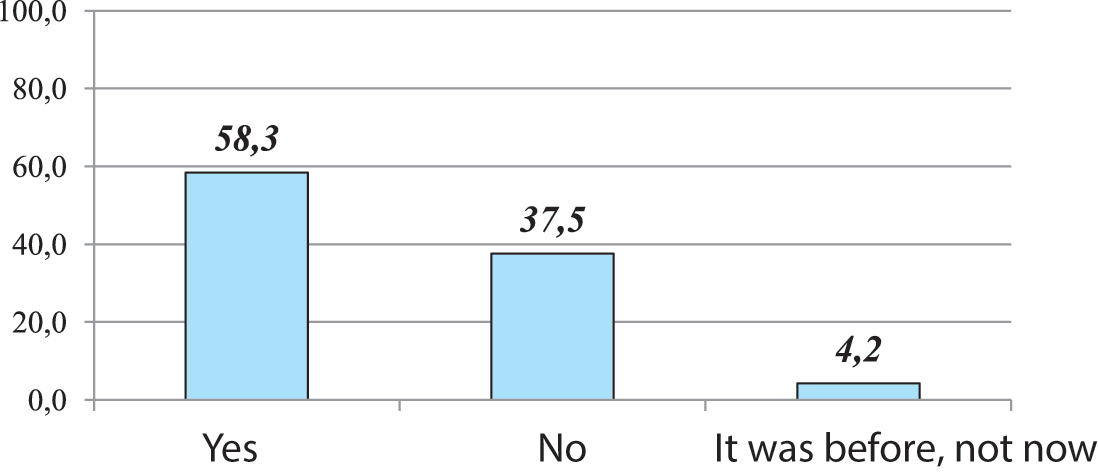Mass academic sports development projects: multilateral management model
Фотографии:
ˑ:
PhD, Associate Professor N.V. Peshkova1
Dr.Hab., Professor S.M. Kosenok1
1Surgut State University, Surgut
Keywords: multilateral management, academic sports, students, education process entities.
Background. At the modern stage of the youth sports development in Russia, the national government gives an increased priority to academic sports. Their importance for the Russian society is formalised by a few relevant regulatory provisions. One of the key success criteria for the Physical Culture and Sports Development Strategy of the Russian Federation for the period up to 2020 (as provided by the Government of the RF Decree #1101-r of 07.08.2009) is the share of students systemically going in for physical training and sports.
The above provision is well grounded by the study reports of many prominent national researchers including V.K. Bal'sevich, L.I. Lubysheva, I.V. Manzheley et al [2, 6, 8] that demonstrate benefits of the sporting practices not only for the young people’s health but also for a variety of valuable individual qualities being formed including tenacity, discipline and responsibility plus the self-identification, self-control and self-development abilities. All these qualities and abilities are highly appreciated in any social and professional community, and it is only natural that they heavily contribute to the competitiveness of the actively sporting graduates on the labour markets.
Management of the national universities, physical education departments and academic sport clubs take different efforts to lure students into the academic physical training and sports processes by offering free trial training sessions in sport groups; expanding the range of academic physical education practices, sports and events; and making them more versatile to give every student an opportunity to select the sport and events according to the individual predispositions, interests and needs.
However, each academic initiative inevitably comes to the questions of whether or not the beneficiaries of the academic sporting activity are really engaged in the process design and implementation; i.e. if the objective and missions of the academic sporting process set by the management of the national universities, their physical education departments and academic sport clubs really meet interests of the students. Regretfully, it should be confessed that students are often uninformed on the sport process policies, schedules and events when they are decided and approved, whilst the sport disciplines and priorities of the academic sport groups are often dictated by the specialities of the coaches and instructors employed by the departments. This means that the new initiatives, the academic sports promotion activities and the efforts to lure students in active sports are still driven by the outdated models with little if any attention given to the modern trends in the education system management in particular and social system management on the whole.
Objective of the study was to provide theoretical substantiations for the multilateral management system in application to the modern mass academic sports.
Methods and structure of the study. The study was performed using a variety of methods including theoretical analysis; summaries of the available electronic and printed publications on the subject matter; and a questionnaire survey of 34 students from 24 Russian universities (in the cities of Kurgan, Omsk, Surgut, Sevastopol, Novosibirsk, Kursk, Kaliningrad and some others) timed to the III Forum of the Russian Academic Sport Clubs Association. The Forum summoned mostly the academic sport club leaders to discuss a variety of design and management issues of the modern academic sports and the existing management system integration models and opportunities.
Study results and discussion. As far as the modern academic sports management trends are concerned, we would make a special emphasis on the matters of efficient cooperation of the academic physical education and sports sector (in a wide interpretation) for progress of the sector management system. As was mentioned by V.A. Slastionin, I.F. Isayev, Y.N. Shiyanov, the traditional philosophy of actions makes a transition nowadays to the philosophy of cooperation, interaction and reflexive management (2007).
V.E. Lepskiy in his overview of the evolution of management system knowledge in the context of its theoretical practicability came to conclusion that increasingly dominating in the early XXI century are the “subjective-multilateral cooperation paradigms” and “human-centred self-developing systems” [5]. Some authors mentioned that in the context of the late classical reality, management is commonly interpreted as the “gentle control forms” designed to facilitate the development process rather that strictly determine the relevant process systems. Furthermore, V.E. Lepskiy refers to the multilateral management system as the main control form within the above paradigms [5]. It may be pertinent to note that the multilateral design of the management process facilitates and at the same time requires a self-fulfilment-driven contribution from the process actors in the decision-making process [9].
It is also important that the multilateral management system is designed to encourage a psychological harmony of the process actors with the “individual impacts on the object” being replaced by the “multilateral interaction” which, as provided by I.V. Vachkov, will facilitate the creative self-development, mutual development, self-culturing and mutual culturing processes [3].
In opinion of V.I. Kovalenko, a management system may be referred to as the multilateral one when it is designed to actively mobilise the total individual resource of each actor to secure due synergy in the cooperative activity with the individual responsibilities being duly customised to interests, capacities, limitations and actual competences of each process actor [4].
Therefore, a special priority will be given to every party’s role within the management system including not only physical education teachers, academicians and sport club directors (who largely determine the academic sport development policies of the relevant university) but also students.
As provided by K.A. Abulkhanova-Slavskaya, “an individual becomes an actor when he/she not only masters the relevant social and historical forms of activity... but also organises the activity and its own contribution to the latter” [1, p. 305]. It is important to underline in the context that “the own activity structuring by an individual is dominated by the actions to fully mobilise personal resource, customise own activity as required by the relevant standards and harmonise it with activities of other people” [1, p. 305].
As we mentioned before, it is high time, in our opinion, to revise the academic sports management concepts with a special emphasis on the multilateral management system tools designed to implement a variety of the core management functions including the process planning, structuring, control and supervision.
It would be improper to state that the system revision issue has come to the forefront only now. The problem was catalysed in fact in 2013 when a new Russian youth and student organisation called the Academic Sport Clubs Association of Russia (ASCA) was established and actively supported by President V.V. Putin, with the ASCA’s mission designed to “facilitate mass academic sports development and healthy lifestyle popularisation processes” (studsportclubs.ru). It was the ASCA that has encouraged and contributed to the academic sport clubs (ASC) establishment process, with the clubs being qualified the students’ self-control entities. As things now stand, ASCA runs a variety of sport activities including sports championships (previously there were only club tournaments), discussion clubs and students’ fitness tests under the ASCA etc. It should be mentioned that academic sport clubs in many universities operate as their structural divisions responsible for all forms of academic sports development initiatives in parallel with traditional physical education departments which formal mission is much the same.
Therefore, the academic sports multilateral management system catering for the interests of its every actor is highly topical at this juncture. The questionnaire survey under the study generated the data generally supportive of this opinion: see Figure 1.

Figure 1. Responses to the question “Do you have an academic sport club in addition to the student sport clubs (SSC) at the university?”
The respondents reported that 58.3% of the universities run academic sport club in addition to student sport clubs: see Figure 1. It should be noted that this proportion has been virtually the same for the last few years since our previous survey of 2013 generated very close data [67].
Given on Figure 2 hereunder are the survey data showing the cooperation of the student sport clubs, physical education departments and academic sport clubs (if any).

Figure 2. Responses to the question “Is there any cooperation of your student sport club (SSC) with the physical education department and academic sport club (if any)?”
The survey data generally showed that in most of the universities surveyed the SSC cooperate with other sports organisations albeit some of the respondents mentioned the relationship with the university management, physical education departments and academic sport clubs being problematic. Chairpersons and activists of the student sport clubs also complained that management of the academic sport facilities (some of them serve sport event other than the university ones) is reluctant to give enough time for the university sport events and the service quality is still poor whilst the SSC members are not competent enough in the event management and servicing domain.
Conclusion. The study data and analyses confirmed the benefits of the multilateral management model in application to the academic sports system. It is the academic sports multilateral management model that makes it possible to fully mobilise an individual resource of every process actor and attain a synergic effect in their joint activity, with their project responsibilities being reasonably shared as required by their core interests, capacities, limitations and competences. We believe that the multilateral management system will give the means to eliminate the still significant disharmony in the efforts taken by different actors and thereby step up the mass academic sports development efficiency in our country.
References
- Abulkhanova-Slavskaya K.A. Lichnost v protsesse deyatelnosti i obshcheniya [Personality in activity and communication]. Psikhologiya lichnosti: khrestomatiya, vol. 2 [Personality psychology: Reader, vol. 2]. Samara: BAKHRAKH-M publ., 2000, pp. 301-330.
- Bal'sevich V.K., Lubysheva L.I. Teoriya i tekhnologiya sportivno orientirovannogo fizicheskogo vospitaniya v massovoy obshcheobrazovatelnoy shkole [Theory and technology of sports-centered physical education in mass comprehensive school]. Fizicheskaya kultura: vospitanie, obrazovanie, trenirovka, 2005, no.5, pp. 50-53.
- Vachkov I.V. Polisubjektnoe vzaimodeystvie v obrazovatelnoy srede [Polysubject interaction in educational environment]. Psikhologiya. HSE journal publ., 2014, no. 2, pp. 36-50.
- Kovalenko V.I. O polisubjektnom upravlenii vuzom [Multilateral university management]. Vysshee obrazovanie v Rossii, 2004, no.2, pp. 173-174.
- Lepskiy V.E. Evolyutsiya predstavleniy ob upravlenii v kontekste razvitiya nauchnoy ratsionalnosti [Evolution of ideas about management in context of development of scientific rationality]. Sb. mater. IX Mezhdunar. simpoziuma "Refleksivnye protsessy i upravlenie" [Proc. IX Intern. Symposium "Reflexive processes and control"]. 2013, Moscow: Kogito-Center publ., 2013, pp. 43-55.
- Lubysheva L.I., Peshkova N.V. Integratsiya deyatelnosti sportivnogo kluba i kafedry fizicheskoy kultury v kontekste razvitiya studencheskogo sporta v vuze [Integration of sports club and Physical Education Department activities in context of university sport development]. Teoriya i praktika fiz. kultury, 2016, no. 5, pp. 90-93.
- Lubysheva L.I., Peshkova N.V. Analiz razvitiya studencheskogo sporta: sostoyanie i perspektivy [Analysis of Development of University Sport: State and Perspectives]. Teoriya i praktika fiz. kultury, 2014, no. 1, pp. 39-41.
- Manzheley I.V. Sredovy podkhod v formirovanii sportivnogo stilya zhizni studencheskoy molodezhi [Environmental Approach in Formation of Sports Lifestyle of Young Students]. Teoriya i praktika fiz. kultury, 2013, no. 12, pp. 9-13
- Panferkina I.S. Rol polisubjektnogo upravleniya v sovershenstvovanii metodov professionalnoy podgotovki budushchikh spetsialistov v vuzakh MChS Rossii [Multilateral management for improvement of specialists' vocational training methods in universities of EMERCOM of Russia]. Problemy obespecheniya bezopasnosti pri likvidatsii posledstviy chrezvychaynykh situatsiy, 2012, no. 1, pp. 348-351.
Corresponding author: peshkova_ffk@mail.ru
Abstract
Presently a high priority is being given to the initiatives to improve the mass academic sports management system efficiency. We should note that the new initiatives, academic sports promotion activities and the efforts to lure students to active sports are still driven by outdated models with little if any attention given to the modern trends in the education system management in particular and social system management on the whole.
The study was based on a theoretical analysis and summaries of the available reference literature on the subject plus a questionnaire survey (with 34 students from 24 Russian universities being sampled) timed to the III Forum of the Russian Academic Sport Clubs Association. The study has come to the following findings: the present situation requires the academic sports development project management being designed on a multilateral basis for the reason that such a model makes it possible to fully mobilise an individual resource of every process actor and attain a synergic effect in their joint activity, with their project responsibilities being reasonably shared as required by their core interests, capacities, limitations and competences. We believe that the multilateral management system will give the means to eliminate the still significant disharmony in the efforts taken by different actors and thereby step up the mass academic sports development efficiency in our country.



 Журнал "THEORY AND PRACTICE
Журнал "THEORY AND PRACTICE